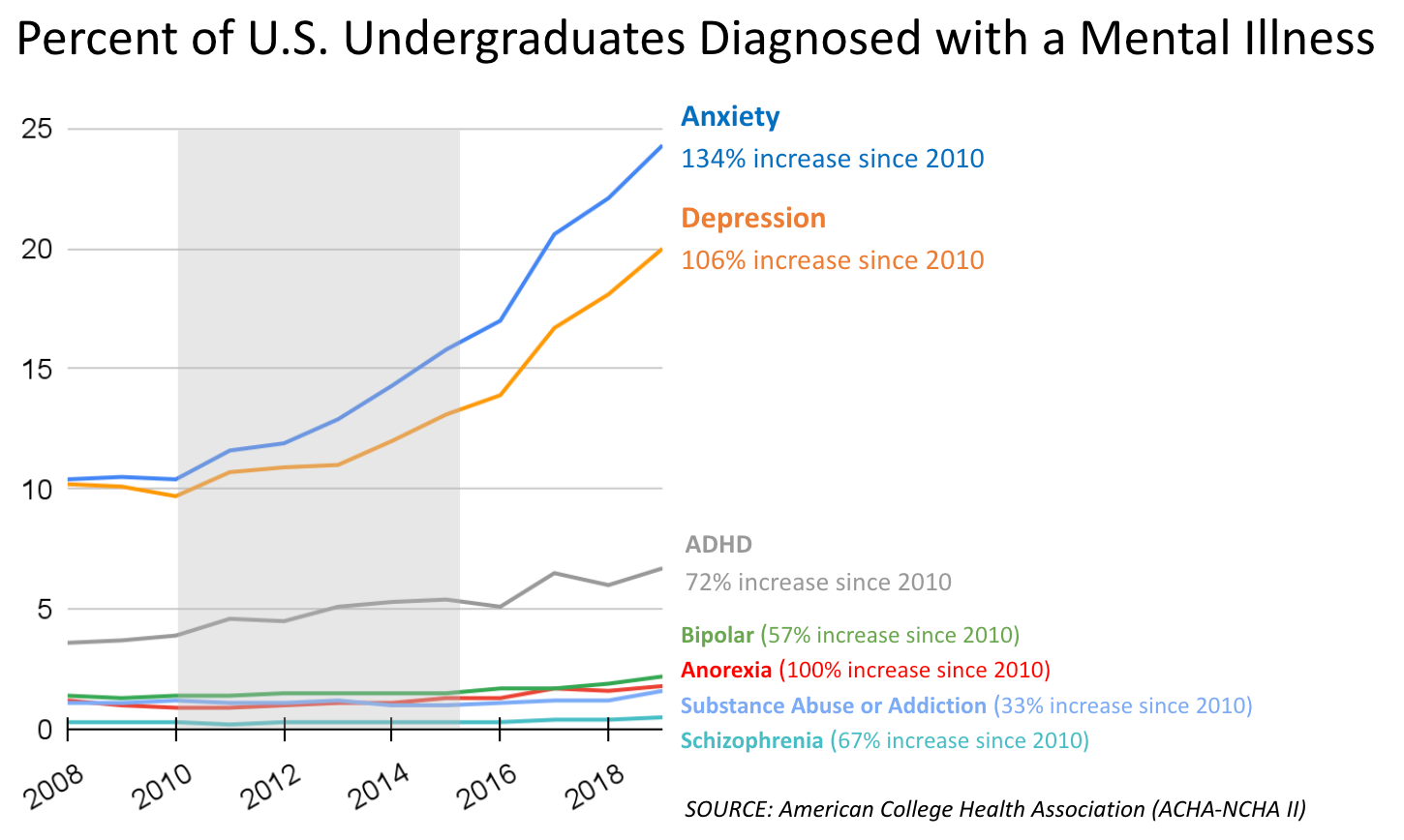Why we need to restrict cellphones in classroom
Study after study, superintendent after superintendent support this legislation
In sixth grade, our daughter, like most middle schoolers, requested a cellphone. Sejal and I said no. Undeterred, our daughter then created a Powerpoint presentation where she outlined the need for such a cellphone and provided answers to anticipated questions. We still said no and delayed giving her a cellphone until her second semester of seventh grade because most of her peers already had a cellphone.
I still think seventh grade was too soon.
Last year, parents and lawmakers finally caught on. Much of the credit goes to Johnathan Haidt, a social psychologist and author of The Anxious Generation [check out his Substack
]. In his book, Haidt makes two points - that we’ve seen an increase in phone-based childhood and a decrease in play-based childhood.Increase in Phone-Based Childhood
First, Haidt points that out that we’ve entered into a phone-based childhood that’s resulted in more mental health issues starting in 2012. We’ve seen the most impact most on Gen Zers (born after 1995) and Millennials (born between 1981-1985). If you look at the graph below, you’ll see how the introduction of smartphones led to a huge increase in anxiety and depression in the early 2010s.
Decrease in Play-Based Childhood
Second, Haidt points out that we’ve seen a decrease in play-based childhood, starting in the 1980s that speed up in the 1990s. As Haidt writes on his website:
“The loss of free play and the rise of continual adult supervision deprived children of what they needed most to overcome the normal fears and anxieties of childhood: the chance to explore, test and expand their limits, build close friendships through shared adventure, and learn how to judge risks for themselves.”
It’s these two trends - the increase in the phone-based childhood and decrease in play-based childhood - that’s led to what Haidt calls the Great Rewiring of Childhood.
A Year-Long Path to Cellphone Restriction Legislation
Over the last year, I, along with Senator Jim Burgin (R-Harnett) have pushed for cellphone restrictions in school. In April 2024, we filed a bill (Senate Bill 865) to study different cell phone policies in schools.
In September 2024, North Carolina State University’s Friday Institute for Education Innovation hosted a “Cell Phones, Students and Schools” conference as part of their Real Issues, Real Data series where attendees heard from national mental health experts and policy analysts. As I said at the conference, “I think we’ve . . . created a phone-based childhood and even a phone-based school experience that certainly needs to be revisited.”
In December 2024, both Senator Burgin and I spoke at the Bi-Annual Planning and Work Session for the North Carolina State Board of Education where we also discussed cellphone legislation.
Introduction of Cellphone Restriction Legislation
Earlier this week, Senate Education Committee Chair Michael Lee (D-New Hanover) and Senator Burgin introduced legislation that restricts cellphones in the classroom (Senate Bill 55).
I’ve applauded Senator Lee for filing this bill, and I’ve co-sponsored this legislation, too, because I believe we need to do more to stop the digital distraction of kids in our classroom. Unfortunately, we have a collective action problem where we’ve created a phone-based childhood as opposed to a phone-free childhood. Study after study and superintendent and superintendent have told us that phone-free schools benefit students, teachers, and parents. With this legislation, we’ll join more than a dozen other states that have passed legislation to restrict cellphone use in classrooms.
According to the Pew Research Center, 68 percent of adults say they support a cellphone ban on middle and high school students during class. The Pew Research Center also found that 72 percent of teachers believe cellphone distraction is a major problem in the classroom. Nineteen states have a passed law or policies that ban or restrict students’ use of cellphones in schools statewide or recommend local districts enact their own bans.
We’ve filed the legislation. I’m now hoping this legislation gets a quick hearing and passes both chambers so we give school boards and schools time to start the 2025-26 school year phone-free - something that’s ultimately best for our kids.
Have a great weekend,
Jay J. Chaudhuri
Senate Democratic Whip




